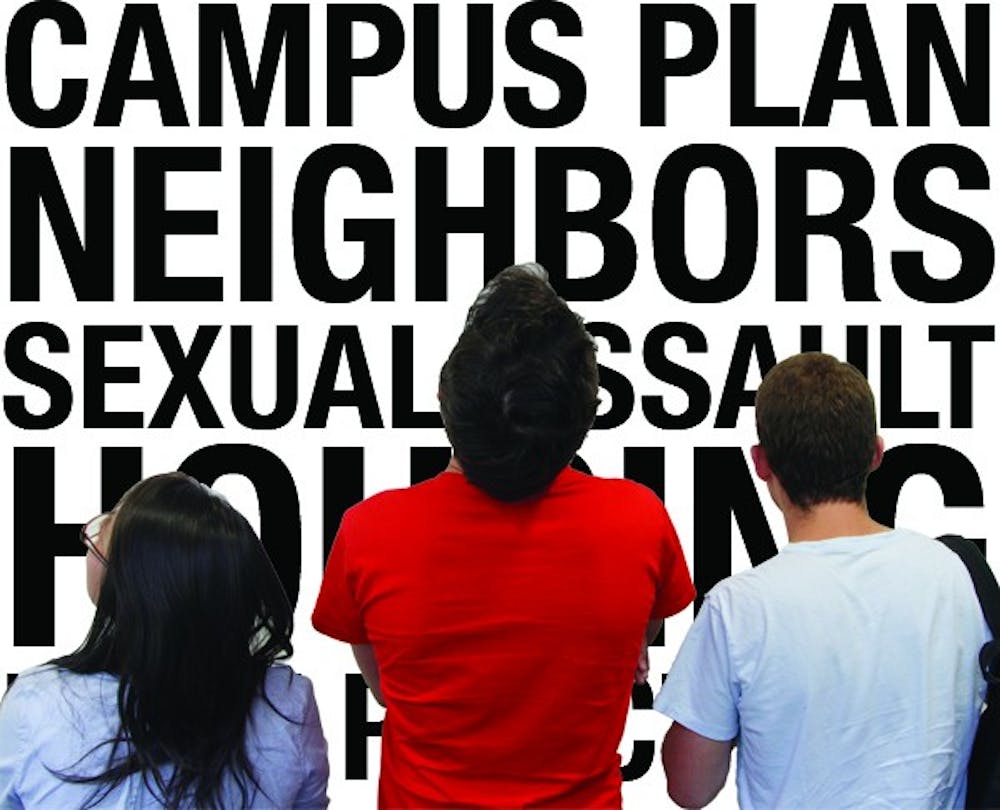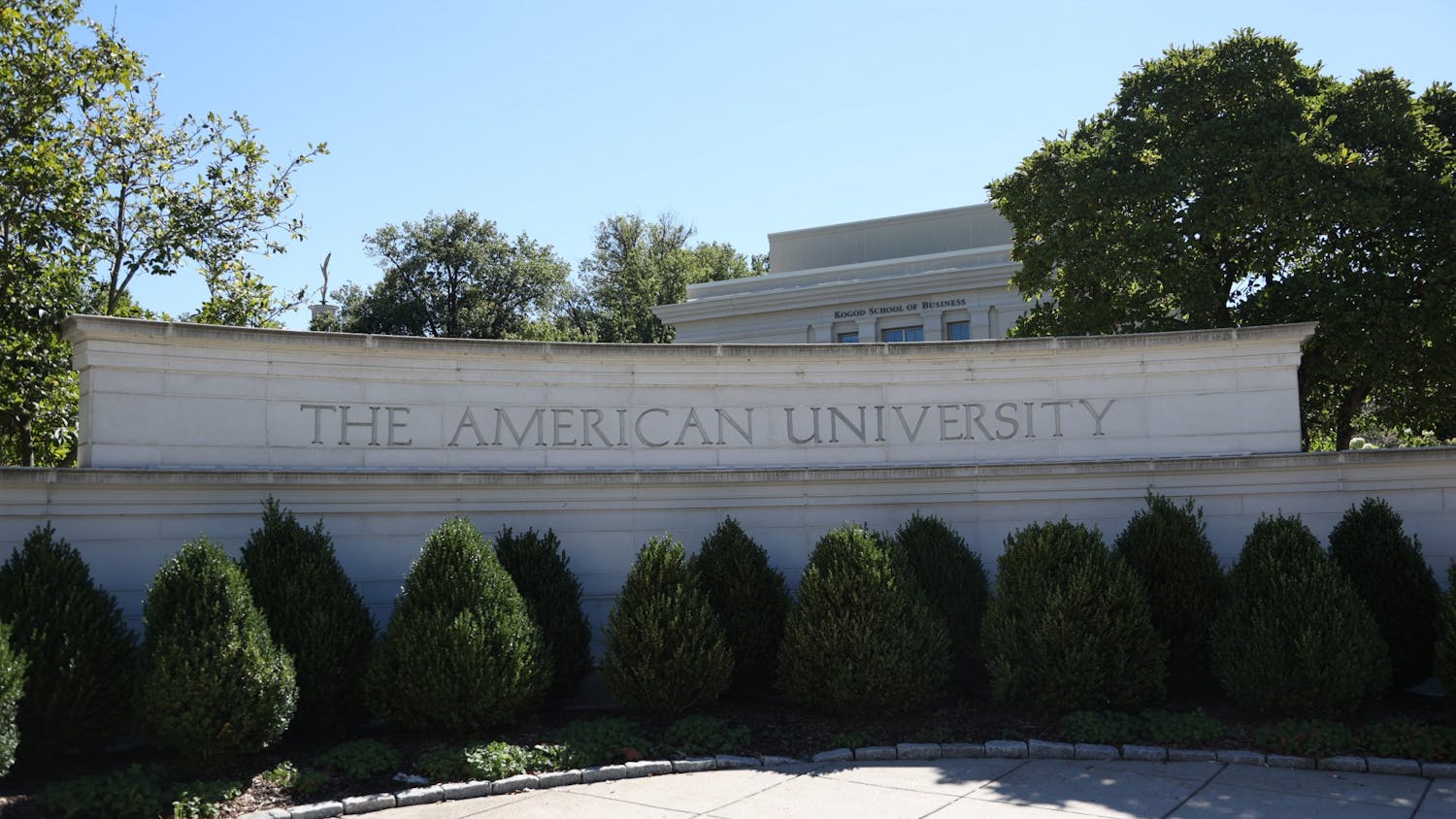The recent expansion of the Student Conduct Code’s jurisdiction off campus stems from the University’s attempt to improve neighbor relations, pass the Campus Plan and prevent persistent off-campus misbehavior, according to AU officials.
As of June 15, AU can discipline students for off-campus misconduct that does not necessarily violate local, state or federal laws.
AU revised its conduct code to give the University the power to take disciplinary action, “when, in the judgment of University officials, a student’s alleged misconduct has a negative effect on the university’s pursuit of its mission or on the well being of the greater community.”
Gail Hanson, vice president of Campus Life, said the code’s language is purposely broad to give administrators “discretion” to deal with misconduct.
However, she said the additional jurisdiction does not mean the University is looking to police student behavior off campus.
 Click for full graphic. Click for full graphic.
|
The code is usually tweaked every year, Hanson said, but University staff worked on more changes to the code last year to give the University more jurisdiction to impose sanctions on students for off-campus misconduct. Previously, AU could only sanction off-campus students if they were given a police citation, according to Rob Hradsky, the dean of students.
Administrators’ inability to sanction alleged off-campus offenders without such legal documentation often left AU officials at a loss for how to deal with frequent and egregious misconduct that did not necessarily violate any laws — like neighbors’ noise complaints.
“Because there was nothing that was available as a sanction, all we had really was moral persuasion,” Hanson said. “That had a terrible adverse effect on University neighbor relations.”
Campus Plan
AU is doing more to improve community relations because of the planned presentation of the Campus Plan to the Zoning Commission later this fall.
The Campus Plan is a 10-year plan detailing facilities changes AU wants to make, including the proposed addition of “East Campus” on what is currently the Nebraska parking lot. Administrators consider the adoption of the Campus Plan to be part of “the University’s pursuit of its mission.”
Hanson said student misconduct has had an effect on neighbor relations, which can affect the Advisory Neighborhood Commissions’ endorsements of the Campus Plan.
“It’s our judgment that it begins to adversely affect us when we go to Advisory Neighborhood Commission meetings and the neighbors are describing our student conduct to us and saying that as a result of what they’ve experienced, they won’t support the University in doing this or that,” she said.
The Campus Plan must be approved by the District’s Zoning Commission, which gives “great weight” to Advisory Neighborhood Commission recommendations and reports, according to Zoning Commission regulations.
AU’s campus falls within both ANC 3E and ANC 3D.
AU’s Chief of Staff David Taylor said at the last Campus Plan presentation to the Zoning Commission 10 years ago, conditions for approval were imposed by the Commission as a result of ANC recommendations, including a mandate for AU to house two-thirds of its undergraduate students on campus.
However, local ANC commissioners say that although they have power on paper, it is not always true in practice.
“The ANCs like to believe that they carry significant weight with the Zoning Commission,” said ANC 3E Commissioner Matthew Frumin. “It’s not always the case.”
Frumin added that he does not think the changes to the code will make the difference in ANC opinion of the Campus Plan, but said it is one of the ways AU is trying to show that it is sensitive to the needs of the broader community.
ANC 3D Commissioner Tom Smith, however, said the University would like students to think that the community hates them, but that it is not true.
“The frustration hasn’t been with the students,” he said. “It’s been with the University and their inconsistent statements.”
Smith added that the issues raised have not been about student conduct but concern about the University’s imminent expansion.
He said that for AU to claim the code was changed in order to shore up ANC support for the Campus Plan is “really disingenuous.”
Neighbor relations
Smith also said that community members were surprised that the University did not have the authority to deal with off-campus behavior earlier.
Frumin said he did not even know the code was changed until he recently found the new version on AU’s website.
Hanson, however, said the neighbors had been notified of the changes through various meetings over the summer.
When told that the ANC commissioners had not been aware of the changes, Hanson said that claim was “disingenuous.”
Taylor has been present at numerous Campus Plan meetings and said he thought the neighbors had been notified of the Conduct Code changes, but will follow up to check.
Frumin said last year there were complaints about student conduct off campus, but AU’s hands were tied under the old code.
Frumin added that he thought that misbehavior like noise complaints would not be tolerated on campus. Because it occurred offcampus, however, there was less the University could do.
Prior to these changes, the University was unable to “hold students accountable” for their off-campus actions that did not violate the law. Bad behavior was starting to add up, according to Hradsky.
If similar behavior happened on campus, however, sanctions could be taken under the old code.
Last year, of the 27 total neighbor complaints, 15 were filed by the same residence, Hradsky said. The house at the source of the alleged misconduct has since been sold and the new owner will probably not rent it to students, Hradsky said.
The house had previously been rented by members of Epsilon Iota, the remnants of a fraternity barred from AU due to misconduct. According to neighbor complaints, there were continuous instances of loud parties, public urination and trash. Members of EI have refuted these claims.
Administrators tried to work with the students living in this house last year to improve their behavior to no avail, Hanson said. The Metropolitan Police Department was unable to give citations because laws prevented them from entering the house unless there was clear evidence of dangerous activity going on, The Eagle previously reported.
But now, should similar behavior occur again, the University is able to take sanctions against students who misbehave on and off campus — rather than just against students on campus.
“I think that’s a great example of where our former process didn’t work — that the restrictions that were placed on us by the former conduct code resulted in a situation that really tied our hands in terms of holding those students accountable,” Hradsky said. “Now that we’ve made these changes, I feel pretty confident that that won’t happen again in the future.”
Staff writer Allie Mooney contributed to this report.
sdazio@theeagleonline.com





